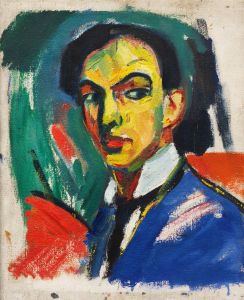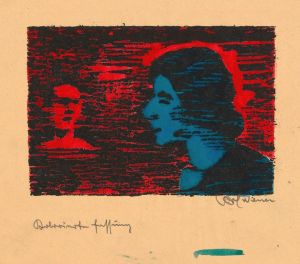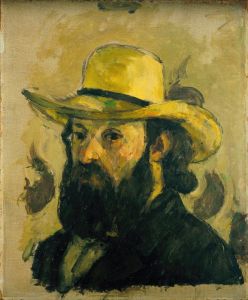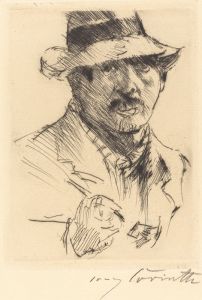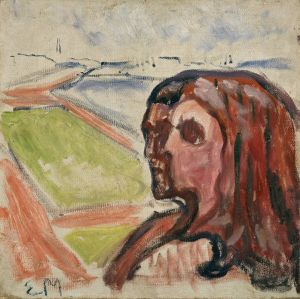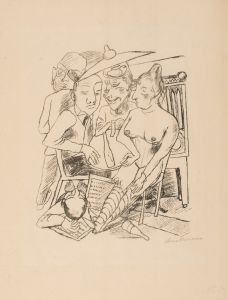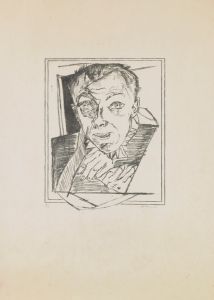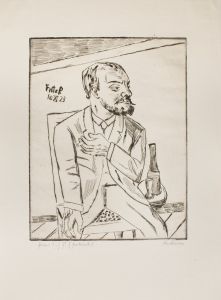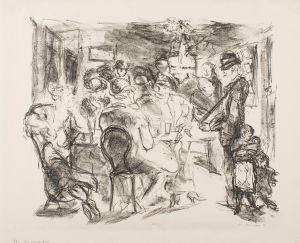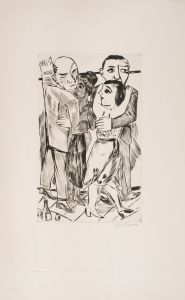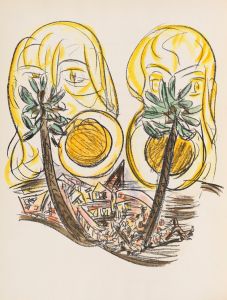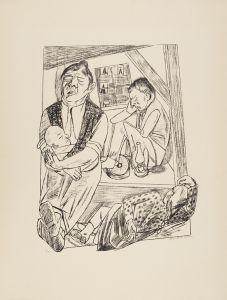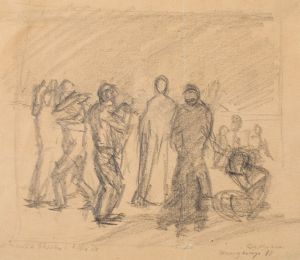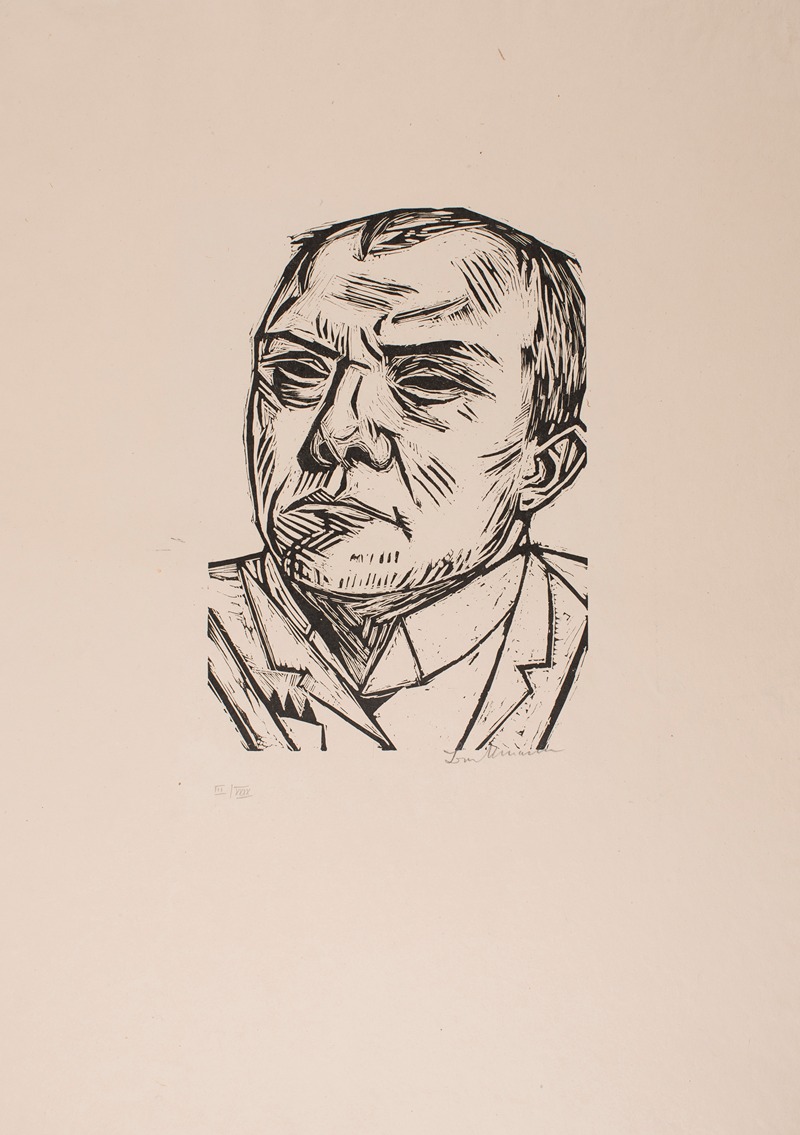
Self-Portrait
A hand-painted replica of Max Beckmann’s masterpiece Self-Portrait, meticulously crafted by professional artists to capture the true essence of the original. Each piece is created with museum-quality canvas and rare mineral pigments, carefully painted by experienced artists with delicate brushstrokes and rich, layered colors to perfectly recreate the texture of the original artwork. Unlike machine-printed reproductions, this hand-painted version brings the painting to life, infused with the artist’s emotions and skill in every stroke. Whether for personal collection or home decoration, it instantly elevates the artistic atmosphere of any space.
Max Beckmann's "Self-Portrait" is a significant work within the oeuvre of the German painter, who is renowned for his contributions to the Expressionist movement. Beckmann, born in 1884 in Leipzig, Germany, is known for his intense and often introspective self-portraits, which provide insight into his personal and artistic journey. His self-portraits are celebrated for their psychological depth and the way they reflect the tumultuous times in which he lived.
Beckmann painted numerous self-portraits throughout his career, each capturing different aspects of his personality and the evolving context of his life. His self-portraits are characterized by their bold use of color, strong lines, and a sense of immediacy and presence. They often depict him with a direct gaze, engaging the viewer with an intensity that suggests both confidence and introspection.
The period during which Beckmann was most active as an artist was marked by significant historical events, including World War I, the Weimar Republic, the rise of the Nazi regime, and World War II. These events had a profound impact on his work and are often reflected in the themes and moods of his paintings. Beckmann's art was labeled as "degenerate" by the Nazis, leading to his dismissal from his teaching position at the Städelschule in Frankfurt and prompting his eventual emigration to the Netherlands and later the United States.
Beckmann's self-portraits often reveal his response to these external pressures and his internal struggles. They are not merely representations of his physical appearance but are imbued with symbolic elements that convey his thoughts and emotions. The use of dark, rich colors and dramatic contrasts in his self-portraits often suggests a sense of tension and conflict, both personal and societal.
One of Beckmann's most famous self-portraits is "Self-Portrait in Tuxedo" (1927), which exemplifies his style and approach to self-representation. In this work, Beckmann presents himself in formal attire, yet the expression on his face and the intensity of his gaze suggest a deeper narrative, possibly reflecting his complex identity as an artist navigating the challenges of his era.
Throughout his career, Beckmann remained committed to exploring the human condition through his art. His self-portraits serve as a testament to his enduring quest for self-understanding and his ability to convey the complexities of human experience. Beckmann's work continues to be celebrated for its emotional power and its ability to capture the essence of an artist who was deeply engaged with the world around him.
Max Beckmann passed away in 1950, but his legacy endures through his impactful body of work, including his self-portraits, which remain a vital part of art historical discourse. His self-portraits are housed in various prestigious collections worldwide, where they continue to be studied and admired for their artistic and historical significance.





